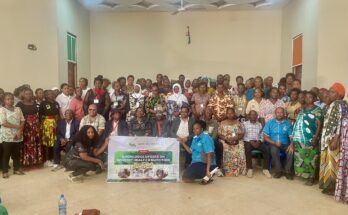A method to stamp out human sleeping sickness by injecting cattle with a parasite-killing drug and spraying insecticide has proven effective in Uganda.
A research project run by the University of Edinburgh in the United Kingdom reduced cases of acute sleeping sickness among people living in the target area by 90 per cent. But instead of treating people, it sought to eliminate the parasite in cows, which act as a host for the disease and also get a form of sleeping sickness.
The research team, which collaborated with Makerere University in Uganda and the Ugandan government, injected 500,000 cows with a chemical that kills parasites.
In addition, the team regularly sprayed insecticide throughout the field trial to eliminate the parasite’s carrier — the tsetse fly.
On 9 November the team announced that it plans to roll out the treatment across Uganda, which would cover about 2.7 million cattle.
“For this neglected disease, treating the infection in cattle, the source of infection to humans, offers us a double whammy: healthier people and healthier animals,” said Sue Welburn, a vice-principal at the University of Edinburgh who led the study. “By turning cows into deadly targets for tsetse flies, sleeping sickness is gradually being pushed out of communities.”
Sleeping sickness comes in both acute and chronic forms, and Uganda is host to both. The disease causes fever and daytime sleepiness, and is often fatal if not treated.
According to the World Health Organization, around 65 million people in Sub-Saharan Africa are at risk from the disease.
This article was originally published on SciDev.Net’s Global edition.





interesting article, a good research i mus say. but hope the chemicals will not have harmful effects on the animal?
This experimental trials should interest all veterinary departments of West Africa to mitigate against Nagana,this long standing wasting disease of cattle in west Africa
The drug of choice should be regulated by Government to avoid unprofessional administration that may lead to resistance development
The initiative should also be supported by the ministry of health as a joint one heslthone medicine project in Nigeria
LIFA will show interest to collaborate as our participation to minimizeherds men conflicts in Nigeria and support value addition to healthy cattle rearing in Nigeria
Without a access to the research paper, I will guess that the impact of the chemical on animals and their by-product could be an avenue for further research. This will probably be an area LIFA aims to explore.
I am just been curious that we may be solving a problem but introducing another, and if not properly evaluated may circumvent our effort of ensuring food security:
In conclusion, I believe this is a great write up that requires further research from capable entities like LIFA to further ensure its viability for further usage across the continent.
Many thanks for your comments and observation ,we shall take them into consideration for future initiatives or in collaboration with researchers in veterinary public health